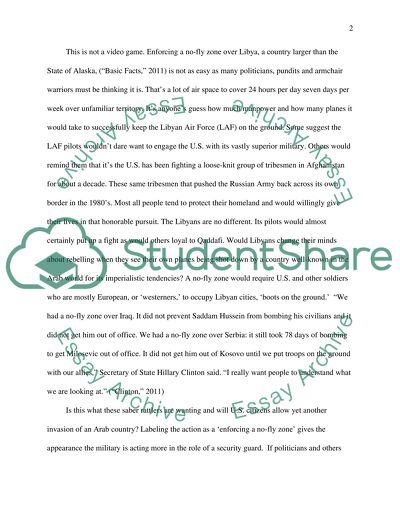Cite this document
(“No U.S. Military Action Warranted in Libya Essay”, n.d.)
Retrieved from https://studentshare.org/social-science/1410559-national-advocacy-paper-political-science
Retrieved from https://studentshare.org/social-science/1410559-national-advocacy-paper-political-science
(No U.S. Military Action Warranted in Libya Essay)
https://studentshare.org/social-science/1410559-national-advocacy-paper-political-science.
https://studentshare.org/social-science/1410559-national-advocacy-paper-political-science.
“No U.S. Military Action Warranted in Libya Essay”, n.d. https://studentshare.org/social-science/1410559-national-advocacy-paper-political-science.


